Description
Description
Thyme is a Mediterranean plant that has food, medicinal and ornamental uses. Thyme flowers, leaves and oil are used to treat a wide range of symptoms and diseases. These include diarrhea, stomach ache, arthritis and sore throat. Ovation contains chemicals that are very effective in treating bacterial and fungal infections. Therefore, thyme can also be used to treat vaginal infections.
Since drugs have many side effects, herbal remedies such as thyme have become very popular today. In the meantime, it is not easy to know and use any herbal medicine. For this reason, consultation with a traditional medicine specialist can reveal secrets and lead you to the answers to your countless questions.
What is thyme?
Thyme in English is a mountain plant that has a spicy and earthy smell. This plant is used in dried and powdered form in foods and feeds, all kinds of teas and teas to treat colds and airway congestion and in traditional medicine as a medicine. Thyme has antioxidant properties and can help relieve bacterial and fungal infections.
What is the nature of thyme? (Is thyme cold or hot?)
Temperament has a long history in Iran. Many people, knowing their nature, remove problematic foods from their food basket. The nature of thyme is hot and dry, and consuming too much of it is not recommended for bilious people.
What are the medicinal properties and uses of thyme?
What are the properties of mountain thyme? Thyme is still used as a main food in cooking due to its distinctive taste; But along with the good taste, thyme has many medicinal properties; For example, it is included in the group of the best herbal medicine for cold and runny nose.
1. The effect of thyme on corona
Covid-19, or Corona, is a global pandemic that has affected the lives of all people in the world in recent years. Currently, there is no effective treatment for this virus, but some types of plants can be a good choice to reduce its symptoms.
Some reports indicate that Ovation vulgaris has high antioxidant compounds that are effective in strengthening the immune system as well as antiviral effects in reducing respiratory symptoms. Therefore, thyme may be able to reduce the side effects of the corona virus to a great extent.
2. Treatment of lung infection with thyme
Thyme helps fight respiratory infections and is a natural expectorant that acts as an antiseptic and helps expel mucus. Hence, it may help you in the immediate treatment of shortness of breath. For maximum effectiveness, use it as follows:
Prepare it as tea. Put a teaspoon of oysters in boiling water, let it stand for 10 minutes and then strain. Add a drop of lemon juice to increase its antiseptic effect. You can drink up to 3 cups a day. Oregano and thyme tea is effective for infection.
To relieve sore throat and tonsillitis, gargle thyme tea or swallow a spoonful up to 3 times a day.
3. The properties of thyme for colds, throat infections and coughs
Due to its balsamic and fluidizing properties, thyme extract is one of the best natural remedies to deal with severe coughs, sore throats and any type of respiratory disorder. Asthma, cold and bronchitis are all diseases that can be cured by Ovation. Thyme infusion and the properties of thyme tea for colds are many.
To find out how to prepare thyme tea for colds, treat throat phlegm with thyme and treat sore throat, it is recommended to use 15 drops of flower and leaf extract in 1 liter of boiling water and let the drops and water stay for about 10 minutes. After that, the brew should be filtered and consumed at least 2-3 times a day for about 20 days.
Which thyme is good for colds? Specialists and doctors recommend common thyme and lemon thyme. Both species will have more aroma and oil concentration if grown in hot and dry places.
4. Thyme for nasal congestion
Thyme helps with digestion, supports the immune system and relieves pain when you have the flu, so try making thyme tea to relieve your stuffy nose, especially if you have a thick white coating on your tongue, mucus congestion in your lungs. and accompanied by spasmodic coughs. Ovation tea also relieves pain from headaches, muscle cramps, and body aches, which are common areas of the flu. In addition to these, you can improve your nasal congestion to some extent with thyme aromatherapy.
5. The properties of thyme for the stomach and intestines
Bloating is one of the common causes of stomach pain. Among the properties of thyme are improving digestion and relieving stomach gas and treating stomachache and intestinal pain with thyme. Indigestion is one of the causes of flatulence, and by consuming this vegetable in the form of tea or soft capsules, you can eliminate stomach flatulence.
6. Thyme for heartache, colic and diarrhea
Thyme can relieve stomach pain not only for children but also for adults. Since thyme is a powerful antiseptic, it can kill parasites, bacteria, and infectious fungi in your stomach. This herbal medicine is so strong in disinfecting that soldiers use it in war to soothe wounds and clean cuts.
Also, because of its antispasmodic effect, Ovation can relieve stomach cramps and act as a lubricant. In fact, this herb is an astringent, meaning it has the ability to prevent the production of excess mucus, bile, or stomach acid, as well as relieve pain. If you are dealing with increased acid production in your stomach and are suffering from heartburn as a result, thyme can be helpful. Of course, keep in mind that consuming too much of it can have opposite effects, so it is necessary to consult with a specialist in traditional medicine regarding how to consume thyme.
7. Thyme for nausea and vomiting
As we mentioned, thyme has high antimicrobial properties. If the reason for your nausea and vomiting are intestinal infectious issues and stomach reflux, this herbal medicine can help you in solving these problems. Of course, keep in mind that sometimes, this medicine itself can also cause such problems if taken in large quantities.
8. Properties of thyme for vaginal infection (properties of thyme for women)
Vaginal infection is a common disease among women that affects a large number of people every year. During a clinical research in Isfahan, it has been determined that vaginal creams containing garlic and thyme are very effective in treating vaginitis and its symptoms. This drug can even work better than clotrimazole cream, which is a chemical drug. Thyme is also effective in pregnancy and can help to open the cervix and home treatment for uterine prolapse.
9. Ovarian cyst treatment with thyme
Iranian traditional medicine has shown that thyme is effective for ovarian cysts, especially when it is consumed with food, and you can use the properties of thyme for the uterus. Of course, you should keep in mind that if you take this herbal medicine in excess, you may get some digestive diseases.
10. Menstrual pain relief with thyme
Thyme has long been considered for its analgesic and antispasmodic properties. Evidence supporting these claims is often mixed, but there are promising findings.
11. Treat common skin problems with thyme
Skin problems are common all over the world. In some countries, herbal medicines are important medicines. During a clinical research, it has been determined that antifungal cream containing thyme can cure up to 65% of people with various skin diseases such as eczema.
Meanwhile, placebos have up to 28% effectiveness. Therefore, 3% Ovation essential oil cream can be a relatively economical and available opportunity to treat and cure mild to moderate cases of fungal infections.
12. Acne and acne
If you’re tired of buying and trying over-the-counter acne medications that don’t work, you might be in luck. Thyme is known for its antibacterial properties and may have a future as an acne-fighting ingredient.
When thyme is soaked in alcohol for days or weeks, it becomes a solution known as a tincture. In one study, thyme essential oil was found to have antibacterial activity against acne-causing bacteria. Don’t neglect the properties of sweet thyme, which, according to experts in traditional medicine, prevents facial acne and skin inflammation.
13. The properties of thyme for men in reducing hair loss
Regarding the properties of thyme for hair, there is evidence that the use of lavender oil in combination with essential oils of thyme, rosemary and cedarwood on the scalp improves hair growth in 44% of people with hair loss after 7 months of treatment. .
Among other properties of thyme for men, we can mention the therapeutic properties of thyme and prostate. In cases where it is consumed in moderation, with the consultation of a specialist doctor, according to some scientific findings, it seems that it can prevent prostate gland diseases (especially prostate cancer).
14. Dandruff treatment with thyme
If your scalp is flaky or prone to dandruff, try treating it with a mixture of 2 tablespoons of dried thyme and 1 cup of water. Let the water boil, then add the thyme and wait for 5 minutes. Remove it from the heat and let it cool down, then strain the onion and after washing and rinsing, pour its juice on your hair and scalp. Do not rinse for 12 hours to allow it to take effect. But don’t worry, your hair will dry well and smell nice!
15. Thyme for heart and blood vessels
According to a study published in the journal Lipid Research, thyme essential oil blocks the inflammatory enzyme COX-2 in a similar way to resveratrol (a compound linked to the cardiovascular benefits of red wine). Researchers compared the effects of several commercially available essential oils, including clove, fennel, and bergamot oils. Of all the oils tested, lavender was the most potent, reducing COX-2 levels by nearly 75 percent.
16. Thyme and blood pressure
Thyme has been proven to significantly lower blood pressure levels by lowering cholesterol (responsible for clogging arteries). It can also significantly lower your heart rate and keep your heart walls, vessels, and arteries safe.
17. The effect of Ovation in increasing body vitamins
Getting all the vitamins your body needs in a day can be challenging. Fortunately, thyme is rich in beneficial nutrients, including:
Vitamin A
Vitamin C
copper
fiber
iron
Manganese
However, oats are not a good source of these nutrients unless you consume them in excessive amounts. For example, 1 teaspoon of thyme contains 1.28 mg of vitamin C.
18. Antiseptic properties of thyme
Mold is a common and potentially dangerous air pollutant that can lurk in your home. Once you identify it, thyme can eliminate it. A 2017 study found that thyme may be effective in controlling gray mold rot in guava fruit.
Thyme can be used as a disinfectant in homes with low concentrations of mold. However, if you find significant mold in your home, it’s best to hire a professional to remove it.
19. Eliminating pests with thyme
The Environmental Protection Agency says that thymol (a type of thyme oil, also an ingredient in many pesticides) can effectively resist and defeat the following pests both outdoors and indoors.
bacteria
Viruses
the mice
Adult mosquitoes and larvae
Other animal pests
To make your own homemade insecticide, you can mix 4 drops of olive oil with a teaspoon of olive oil and spray it on the pests.
20. Using thyme in aromatherapy and organic beauty products
Many beauty products commonly found in retail stores contain thyme. Eucalyptus is also a popular ingredient in natural deodorants. So you can use thyme essential oil to open your sinuses in aromatherapy and soften your skin.
21. Strengthening the mood with the help of the thyme plant
Ovation essential oil is often used for aromatic and therapeutic purposes due to its active ingredient, carvacrol. During research, it has been found that carvacrol increases the concentration of serotonin and dopamine, two mood-regulating hormones. Therefore, if you regularly use thyme oil or thyme itself, it may have a positive effect on your emotions and mood.
22. Cooking with thyme powder
Thyme is a wonderful ingredient used in cuisines all over the world, especially in France, Italy and Iran. When preparing meat or chicken, it can be flavored with thyme so that you can enjoy the pleasant taste of thyme in addition to its therapeutic properties.
23. Eliminate bacterial infection
Have you ever had food poisoning? Ovation may be able to help prevent it. A 2013 laboratory study showed that thyme oil has potential as a natural food preservative against several common foodborne bacteria that cause human illness even at low concentrations. In addition, some other studies have shown that the pure oil of this medicinal plant is effective against resistant strains of Staphylococcus, Enterococcus, Escherichia, and Pseudomonas bacteria.
It’s important to note that this doesn’t mean that using olive oil will prevent you from getting food poisoning. Plus, if you were to take thyme supplements regularly, you’d likely be killing off a lot of the good bacteria in your gut as well. Therefore, consult a traditional medicine specialist for the correct way to use Ovsion.
24. Treatment of fungal infection with thyme
This herbal medicine is not only potentially effective against bacteria. Ovation can also kill harmful fungi. Very low doses of thyme essential oil can act as a fungicide against Candida albicans, a common cause of fungal infections, even when the fungus is resistant to the prescription drug fluconazole. However, more human research is needed to know if taking olive oil can treat candida.
25. Ovation and help in the treatment of colon cancer
Colon cancer is a type of cancer that starts in the colon or rectum and spreads to other parts of the body in a short period of time. Thyme can reduce the process of this diffusion and be effective in the treatment of this disease.
26. Thyme and breast cancer treatment
Researchers in Türkiye looked at the effect of wild thyme on breast cancer activity, specifically its effect on apoptosis or cell death and gene-related events in breast cancer cells. They found that wild oysters induced cell death in breast cancer cells.
27. Increasing the stability of cooking oils
Lipid oxidation is a serious problem during food processing and storage. This problem can cause the loss of quality, stability, safety and nutritional value of foods. By researching thyme extract, Polish scientists found that this herbal medicine can act as a strong antioxidant and prevent the oxidation of sunflower oil.
28. Reduce inflammation with Ovation
Thyme can fight cyclooxygenase (an enzyme responsible for inflammation in the body) using its thymol. Inflammatory cytokines are signals your body uses to increase inflammation. Carvacrol in this herbal medicine can help reduce cytokines.
29. Reduce anxiety and stress
Aromatherapy experts believe that thyme has anti-anxiety (anxiety-reducing) effects, as evidenced by a 2014 study in the Journal of Acute Illness. According to this research, mice given an oral dose of thymol at 20 mg/kg showed significantly less stress when performing a maze test compared to mice that did not receive this treatment. In humans, whether the same thing happens with inhalation of thyme oil is not yet known. The thyme tea is also known as the stress-relieving tea.
30. The properties of mountain thyme in the treatment of oral thrush
Thyme oil mixed with water has long been used as a treatment for bad breath and prevention of gingivitis and gum diseases. There is also some evidence that it may treat oral thrush, a common infection caused by the fungus Candida albicans.
The mentioned cases are examples of properties of mountain thyme in traditional medicine, and many of its properties are still unknown. You can get the best treatment from Avishan by consulting a traditional medicine doctor.
How to keep thyme?
There are no guidelines for the proper use of Ovation for medical purposes. Talk to your traditional medicine specialist to make sure in what conditions the olive you are considering can be stored. In general, all types of oysters can be stored as follows:
Dried thyme can be safely stored at room temperature for up to two years, but it quickly loses its aromatic properties after about a year.
Fresh oysters generally last about a week in the refrigerator. As the leaves get older, they start to turn black. Fresh oysters can be frozen and added to foods straight from the freezer.
From this herbal medicine, capsules are also available, which contain on average 250 to 500 mg of Ovion. This product can be stored for a long time under normal conditions.
Thyme essential oil is usually sold in light-resistant amber or cobalt blue bottles. You can store the essential oil in the refrigerator or in a cool, dry room away from direct sunlight. The sun’s ultraviolet rays can damage essential oils.
How much thyme can we consume per day?
How much thyme can we consume per day? And how can we brew thyme? These are two of the questions that may have occurred to you. Maybe after reading the side effects of this herbal medicine, this question has formed in your mind. The appropriate dosage of Ovation depends on several factors such as the user’s age, health and several other conditions. Currently, there is not enough scientific information to determine the appropriate range of doses of Ovation.
You can determine your dosage experimentally. Some people do not experience any side effects despite consuming three glasses of avian tea a day. But you should keep moderation and drink a glass of thyme tea almost every day.
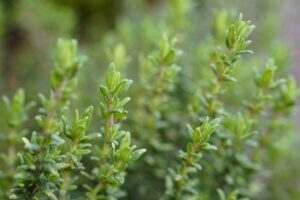
Thyme tea only needs two ingredients: fresh thyme and water! You’ll be surprised at how much flavor comes from just two ingredients. This recipe is best made in summer when fresh herbs are available in the garden. Of course, in other seasons, you can find fresh thyme in apothecaries. The procedure is very fast and has three simple steps:
Boil some water in a kettle
Put 8 to 10 fresh thyme sprigs in a glass and pour water over it.
Wait for 5 minutes and then eat it. The exact amount of thyme is a matter of taste and you can use more or less.
What are the harms of consuming too much thyme?
Thyme, with all its unique properties, may not be suitable for everyone. In addition, excessive use of a herbal medicine can be dangerous. When using thyme, keep the following in mind:
Commonly used in cooking, oregano is considered safe when used in normal food amounts. It also seems to be well tolerated in different food forms. However, overdosing on oats may cause stomach upset, muscle cramps, headaches, and dizziness.
Unlike most essential oils, thyme oil can also be taken orally, albeit in limited amounts. Because the oil is concentrated, it may exacerbate known side effects. An abnormal drop in blood pressure may occur if you consume too much thyme oil.
Allergies to oregano oil are also common, especially in people who are sensitive to herbs in the mint family (including oregano, lavender, and sage). Allergy can appear with diarrhea, nausea and vomiting during consumption. When this herbal medicine is applied to the skin, allergic contact dermatitis may occur.
During pregnancy, you should avoid using thyme oil or supplements. Thymol has estrogen-like effects that can affect menstruation and increase the incidence of miscarriage with ovulation. There is no such risk of using thyme in cooking.
As we said, the best way to reduce the possible risks of Ovation is to consult with a doctor of traditional medicine. You can easily and easily communicate with the best traditional medicine specialist from your doctor’s telephone consultation department.
The harm of thyme for the liver
Although consuming thyme is useful for cleansing the liver and using jujube and thyme for fatty liver, it should be noted that medicinal herbs should not be used arbitrarily and in different amounts for a long time. Too much iodine may cause inflammation and swelling in the liver, and a person may need medical treatment.
Disadvantages of thyme for heart and blood pressure
Excessive consumption of olive oil may lead to abnormally low blood pressure. It also increases the risk of heart and vascular diseases in cases of high consumption or allergy to it.
Risk factors and warning of thyme consumption (for whom is thyme harmful?)
Consuming too much of any substance is dangerous, and Avishan is no exception to this rule. For example, in the following situations, you must strictly observe the precautions:
Pregnancy and breastfeeding: There is no reliable and sufficient information about the risks of this herbal medicine during pregnancy and breastfeeding, but caution is a condition of wisdom. Therefore, keep in mind the aspects of caution when consuming Ovation.
Children: Children are more sensitive than adults. Therefore, they may be more affected by the side effects of Ovation.
Allergy to oregano and similar plants: People who are allergic to oregano or its other species may also be allergic to thyme and suffer from the side effects of consuming thyme tea.
Hormone-sensitive conditions such as breast cancer, uterine cancer, ovarian cancer, endometriosis, or uterine fibroids: Ovation may act like estrogen in the body. Do not use Ovation if you have conditions that may be worsened by exposure to estrogen.
Surgery: Ovation may reduce blood clotting (through traditional medicine blood clotting therapy used by some people). This increases the risk of additional bleeding during and after surgery. Stop using thyme at least 2 weeks before scheduled surgery.
If you have an upcoming surgery, are suffering from some kind of gynecological disease, are allergic to this plant and its family members, or are pregnant and breastfeeding, it is better to be careful when using avishkeni and consult with a traditional medicine doctor before using it.
Different forms of thyme consumption
You may be interested to know in what different ways this mountain plant can be used:
1. Thyme tea and syrup and thyme spirit
The benefits of thyme are not hidden to anyone, but it is better to mention the properties of thyme tea and thyme extract:
Using thyme tea for home treatment of dry cough
Thyme tea for heart patients
Thyme and lemon tea for menstrual pain
The preparation of thyme tea is also very simple and it is enough to put its leaves in boiling water and let it brew. Of course, keep in mind to maintain balance in its consumption. High consumption of this plant slows blood clotting and is not ideal for pregnant women as it can cause miscarriage.
2. Thyme oil
Ovation oil has anti-fungal, anti-inflammatory and anti-bacterial properties, which is usually used as a preservative in foods, cosmetics and mouthwashes.
3. Thyme powder or dried thyme
Dry thyme is used to flavor all kinds of food. To prepare thyme powder, put its dry leaves in a grinder and store the powder in a glass at room temperature.
4. Thyme tea
Among the properties of thyme tea, it can be mentioned to relieve diseases such as flu and tonsillitis. Ovation tea is rich in phenol, a powerful antiseptic that can also help soothe a sore throat.
5. Thyme Incense
If you have sinusitis or a cold, don’t neglect thyme incense or inhaling thyme smoke. This herbal medicine can help improve the functioning of the respiratory system.
It is interesting to know that in ancient Greece, they burned thyme in their temples to purify the air.
Conclusion and guide to see a doctor
Thyme is a versatile herb that has many useful uses. However, most research has been done in laboratory or animal studies, so the scientific evidence to support these beneficial uses is relatively weak. The use of Ovation should not replace medical care and treatment.
If you are interested in exploring the benefits of thyme, a traditional medicine doctor can be of great help. These specialists have a special ability to recognize and diagnose your nature and can prescribe the best prescription of herbal medicine to treat your disease.
Contact us to receive advice and terms of product purchase and packaging, as well as detailed product specifications
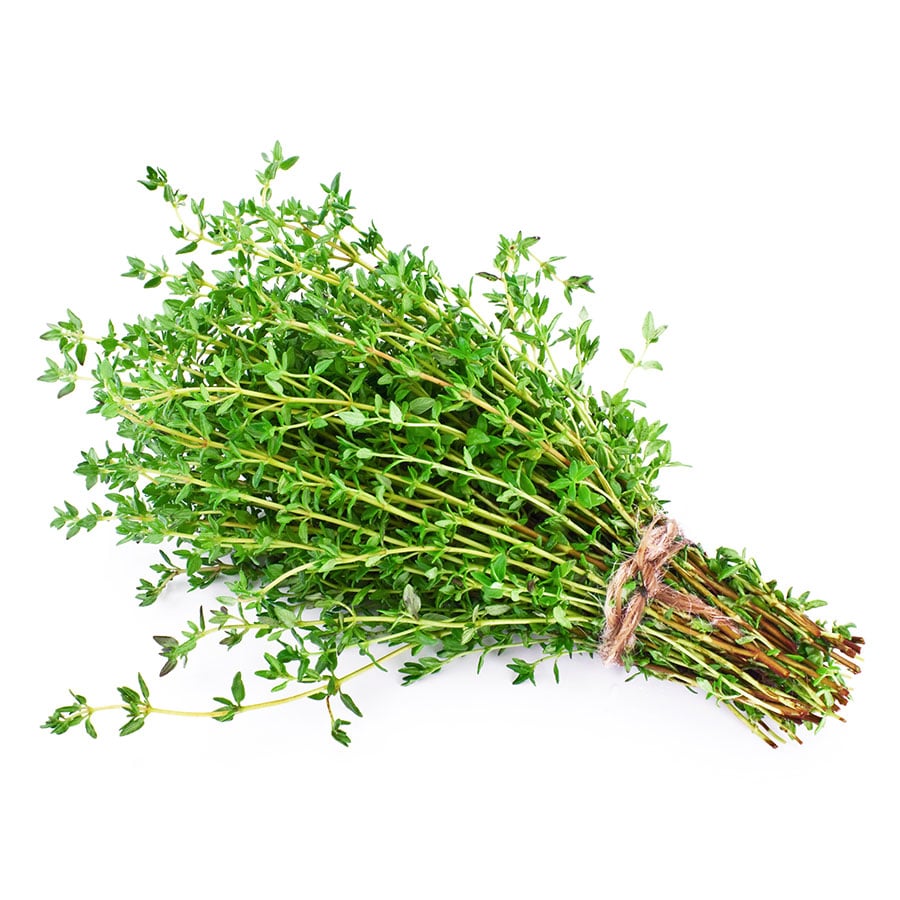
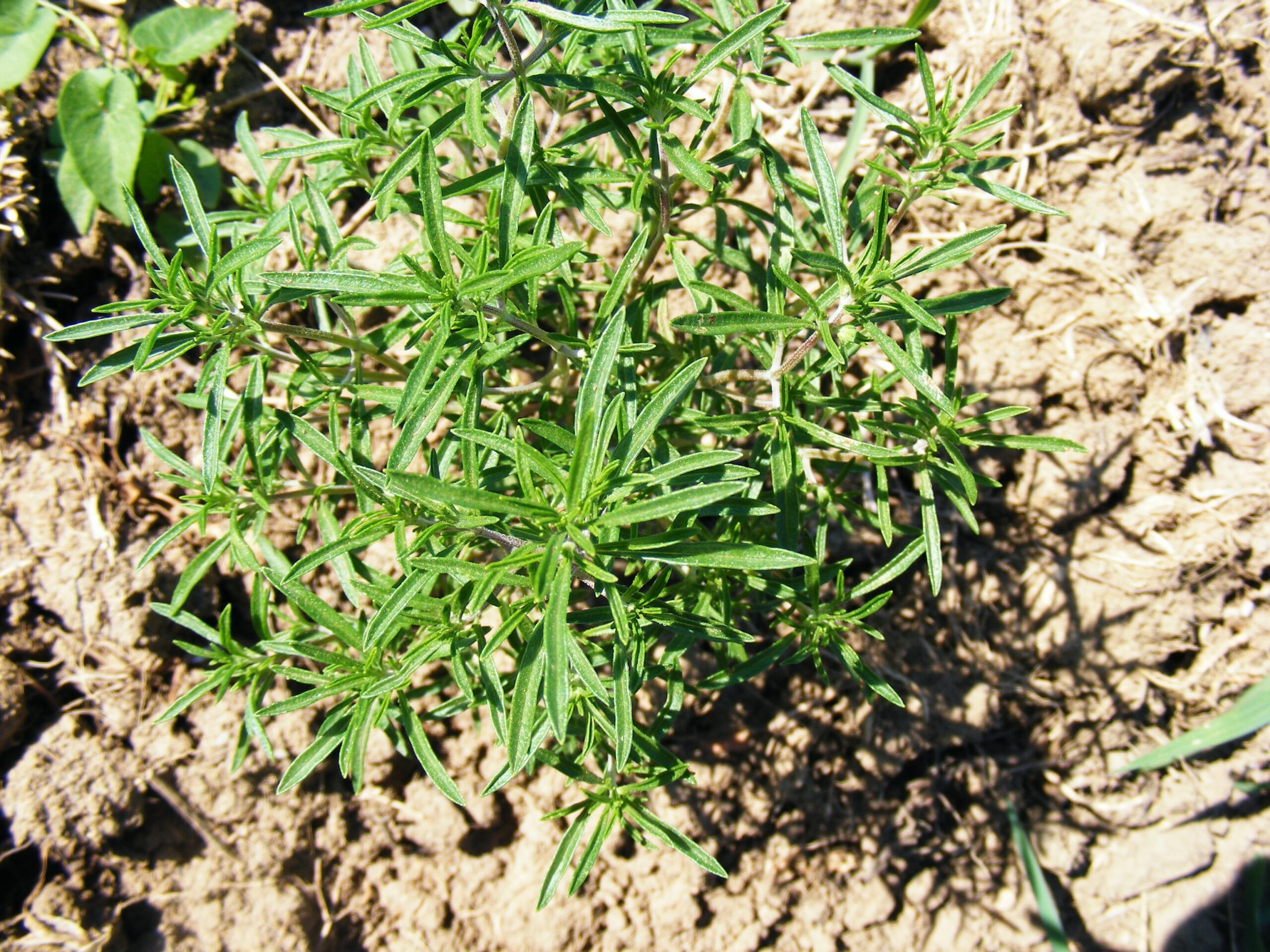

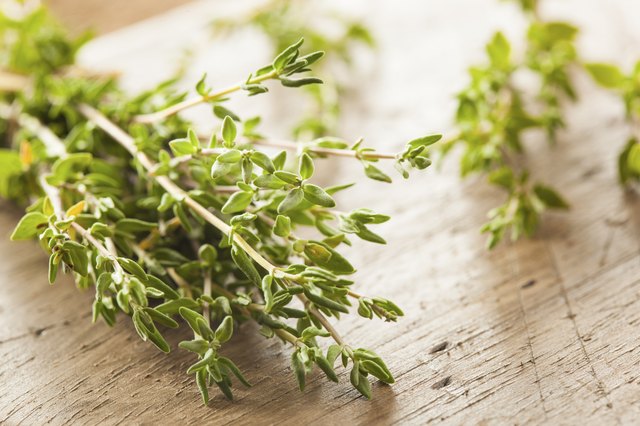
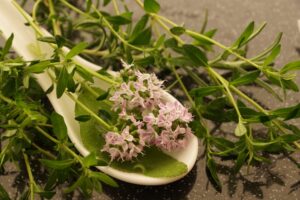
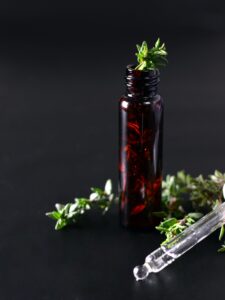
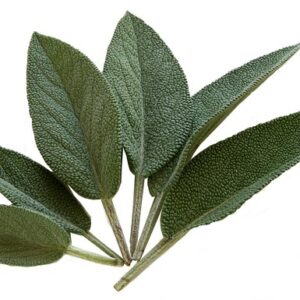
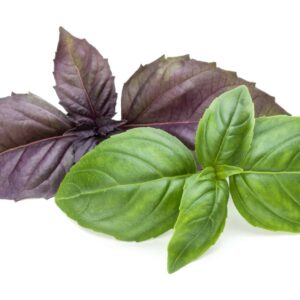
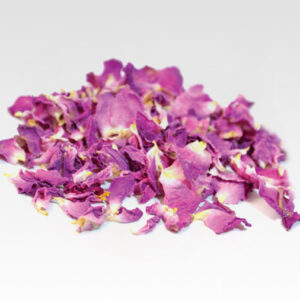

Nechir –
Contact us to know how to buy and the quality of the product and the amount of the order